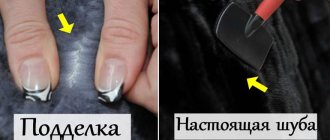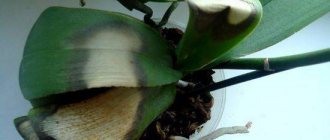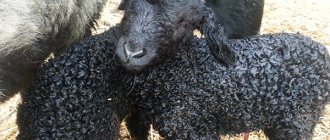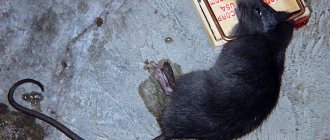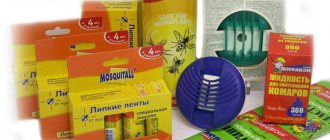Home » Articles about chickens » Sulfur for laying hens
Sulfur is one of the additives recommended for laying hens. It has no analogues and is a lemon-colored powder. It is prescribed for insufficient feathering (apteriosis) and for the prevention of damage by down-eaters.
Application
Sulfur for chickens is used for apteriosis (lack of feathers). For preventive purposes, it is used against fluff eaters (chicken lice).
- Parasites
- Other
Down-eaters
Symptoms: weight loss, restlessness, itching, the presence of many needle-like holes on the feathers, inflammation of the skin and mucous membranes of the eyes, feather loss, loss of appetite, decreased immunity, baldness
Read
Apteriosis
Symptoms: complete or partial absence of plumage, loss of tail feathers, broken embryonic fuzz in young animals, delayed growth of plumage, pecking near the anus
Read
Pharmacological properties of sulfur
Sulfur is involved in processes related to energy production in the body, the synthesis of collagen and keratin, accelerates metabolism, improves blood clotting, and helps strengthen the immune system. In addition, the substance has a positive effect on digestion and normalizes heat exchange.
Do you give sulfur to chickens?
Yes
50.91%
No
49.09%
The component is an integral part of B vitamins, essential amino acids, including cystine, meteonine, and promotes their synthesis in the body.
Additionally, sulfur binds heavy metals in tissues and neutralizes their negative effects on the liver and kidneys.
The organic compound accelerates feather growth and gives it shine. In addition, sulfur helps to increase meat and egg productivity, improves the taste of eggs and poultry meat.
Apteriosis
No special training is provided. Purified sulfur is given to poultry in its pure form, as an additive to daily nutrition, mixed with chilled feed . A daily dose of sulfur is added to freshly prepared feed daily.
The bird must be provided with access to drinking water. To avoid toxic effects, it is not recommended to exceed the dosage.
Dosage and method of administration for adult birds
The daily rate is from 0.5 to 1 g of sulfur powder per 10 birds . Use until the condition of the feathers improves.
There are no specific application requirements for laying hens.
Dosage and method of application for chickens
The drug begins to be used from the 7th day of life of chickens. The daily dosage of sulfur powder, depending on the age, per 100 units of poultry is :
- 7-15 days old - up to 0.5 g;
- 16-30 days - 0.6 - 1.0 g;
- 31-60 days - 1.1 - 2.5 g.
The course of therapy is 30 days.
Features of use for broilers
Sulfur for broilers - adults and chickens is used in the same way as for regular chickens and chicks.
Benefits for chickens
Sulfur activates metabolism and increases appetite. In laying hens, egg production increases. After taking the drug, birds grow faster and their feather quality improves. It is advisable to give the powder to chickens in the fall, during the molting period, so that they do not lose all their feathers. In cold weather, taking the drug ensures normal thermoregulation.
Sulfur in small quantities triggers cleansing processes in the liver, ridding the body of harmful toxins and poisons. Removes parasites from the intestines. In microdoses, this substance helps birds recover faster from illness.
Prevention against fluff eaters
Sulfur is used to prepare sand-ash baths. 100 g of sulfur powder is added to a bucket of ash with sand in a 1:1 ratio . The sand is pre-sifted to get rid of foreign inclusions (glass, nails, wire, pebbles). Ash from burning leaves or firewood is suitable.
After “bathing” chickens in such a bath, a thin layer is created between the feathers and skin, thanks to which the pests die . Sand and ash baths are periodically replaced with newly prepared ones.
Chicken mite: diseases caused by the parasite
Further
Chicken lice: description of parasites and diseases they cause
More details
Chicken bugs are parasites that are carriers of dangerous diseases.
Look
Beetles, lice eaters and fleas in the poultry house: how to deal with them using traditional methods?
Read
Storage rules
Feed sulfur is sold in sachets of 5-10 grams or in plastic bags weighing 0.5-1 kilograms. It looks like a fine lemon-colored powder. Inside the package there are instructions for using this drug with the exact dosage.
Sulfur must be used within 3 years from the date of manufacture or until the expiration date indicated on the label. Store the powder at room temperature, away from sunlight and heating devices. The room must be protected from moisture, precipitation, and wind. The drug should be kept out of the reach of children. Sulfur should not be stored near food.
What is it for?
Feed sulfur is a purified mineral additive for laying hens. Upon contact with air, moisture, ultraviolet radiation, and organic substances, hydrogen sulfide and other compounds are formed that have a therapeutic effect. When taken orally, irritation of gastrointestinal tract receptors occurs, which increases appetite and has a mild laxative effect.
Sulfur is included in:
- protein molecules;
- pancreatic hormone (insulin);
- methionine;
- keratin contained in feathers.
This substance takes part in metabolic processes. The use of the additive provides the following effects:
- activation of digestion processes and the formation of enzymes;
- improvement of metabolism;
- normalization of redox processes and blood clotting;
- strengthening the feather cover, improving skin condition due to collagen synthesis;
- binding and removal of heavy metals that have a toxic effect on the kidneys and liver;
- increasing egg production by increasing appetite and improving food digestibility.
The additive has an active antiparasitic effect.
How to give sulfur to chickens
Sulfur for chickens is used for general strengthening of the body, normalization of metabolic processes, improvement of plumage and skin, getting rid of the bad habit of plucking their feathers and surrounding birds, fighting lice mites, getting rid of parasites, removing toxic substances, correcting the diet when using artificial additives and vegetation grown on soils poor in nutrients.
It is also useful for absolutely healthy individuals; regular addition to food is a means of preventing diseases of the nervous and cardiovascular systems of the bird’s body.
Produced at many enterprises in the chemical industry. There are manufacturers proven by time and quality, in particular Chelyabhimopttorg, Prok Retail and Feed Resources. One hundred percent consists of finely ground sulfur; half a percent of water by weight of the product is allowed. It is based on natural sulfur without any additives made using genetic engineering techniques, hormones, or antibiotics.
The following must be indicated on the packaging or attached documents:
- the company that manufactured the product, contacts, legal address;
- it happens that production is concentrated in another place, it must also be shown;
- expiration dates and storage conditions;
- icons of compliance with standards, GOST 127.5-93 according to the requirements of which it is produced;
- serial number of the industrial batch;
- recommendations for safe use;
- the date it was released. You can easily find feed sulfur at a specialized base that sells animal feed. It will be cheaper to order a large batch for an industrial herd directly from the manufacturer.
What does feeding include?
Some breeders and farmers limit the diet of laying hens to only grain crops or exclusively combined feeds. However, this approach will not allow the full potential of productivity to be used and, in the event of a deficiency of nutritional components, will lead to disease. Therefore, it is recommended to use a feeding regime in which laying hens will receive grain products in the morning and evening, and mash in the afternoon. Feed consumption rates are described in this article.
Stern
- Dry. Includes grain mixtures (barley, wheat, oats, corn), legumes, dry feed, hay and straw. Such products should be present in the diet as sources of vitamins, carbohydrates and proteins.
- Juicy. Such products are also required to be served for poultry. In summer, the group consists of seasonal vegetables and fruits, herbs, and tops. For the winter, it is recommended to harvest melons for long-term storage and fodder root crops.
- Concentrates. They are dry mixtures containing the required amount of proteins, carbohydrates and fats. They require mandatory supplementation with succulent feed.
- Animal feed. This category includes fish and meat and bone meal, dairy products, meat by-products, broths, insects and worms.
Compound feed
Combined feed for laying hens
Compound feed can be given dry in granules, as well as soaked or brewed. Based on them, it is also useful to prepare mash with the addition of broths and fermented milk products.
Premixes and additives
Adding commercial premixes to food is a great way to enrich inexpensive feed and increase the productivity of laying hens. Vitamin and mineral supplements help maintain egg production even in winter
However, it is important to choose specialized premixes for this. Among the most balanced and popular:
- Ryabushka;
- Laying hen;
- Zdravur laying hen;
- Anti-stress for laying hens;
- Felucene.
The vitamin supplement helps increase the laying capacity of chickens.
Dosages are indicated on product packaging. As a rule, it is recommended to add the powder directly to the feed. It is possible to separately purchase such a product for chickens.
Vitamins
The lack of vitamins in the diet of laying hens can be determined by the following signs:
- sudden decrease in egg production (vitamin D, A and B);
- anxiety and fearfulness (vitamin E);
- slower development and growth in young chickens (A, D);
- bleeding and hematomas (K, B vitamins);
- frequent colds (B and E);
- loss of feathers and down (E and B12);
- change in yolk color (A);
- thinning of the shell, fragility (D).
All the necessary vitamins are contained in green grass (especially chickweed and dandelion), carrots, cabbage, and unrefined grains. The premixes listed above can also fill the deficit. Separately, it is possible to use the preparations Vitvod and Vittri for subcutaneous administration and feeding of poultry.
A little about lice eaters
Small parasites that live in the feathers and down of birds. The common name is chicken lice. They feed on dead skin particles and droplets of blood that appear when chickens scratch their skin. They dine under feather fluff, which is why they got their name.
Typical symptoms of infection are the following: - constant scratching and plucking of feathers; feather stem with small holes; - bald spots appear on the body; - lack of appetite and slow development of young animals; - drop in egg production in laying hens. Other ideas
There is also an alternative opinion that poultry can receive all the substances it needs when free-range; this makes the products more environmentally friendly and can be sold at higher prices. However, in the conditions of a long winter in our latitudes, this is practically impossible, and only broiler breeds are profitable to keep for six months before slaughter. Yes, and grazing a large herd is very problematic; cage housing is more effective.
Good luck to you in the difficult field of poultry farming and may your charges always delight you with weight gain and delicious homemade eggs with a bright orange yolk!
Contraindications
The use of sulfur bombs is contraindicated:
- with individual intolerance;
- when chickens are up to 7 days old;
- when used with other disinfectants.
What parasites can chickens have? The danger of internal (external) and external parasites for birds
Read
How to get rid of chicken lice using traditional methods? What do you need to know about parasite prevention measures?
More details
Beetles, lice eaters and fleas in the poultry house: how to deal with them using traditional methods? How can I prevent parasites from appearing again?
Look
How and why to use an iodine block. Features of use for adult hens, laying hens, broilers and chicks
Further
Features of yeast
Yeasts are microscopic-sized mushrooms with one cell. Currently, you can find various types of yeast on the store counter. This can be either baking products or brewer's or feed yeast.
In order to ensure good body weight growth for your chickens, it is best to give preference to feed grades. This yeast is of natural origin and does not have a large list of side effects.
What happens after that. How does a poultry farmer add yeast to birds' diet? Research has given the following result: the use of yeast gives a positive, quick and proven effect.
Here is a list of changes that were noted during the experiment on feeding chickens with yeast:
- Egg production productivity increases.
- The chicken's weight increases.
- The birds' appetite increases.
- Immunity indicators are changing for the better.
But why does yeast have such an effect on the chicken body? This is due to the fact that they contain many vitamins, beneficial elements and acids.
All these components have a beneficial effect on both chicken and adult birds. Reviews from experienced farmers indicate that even the fertility of eggs increases, which has a positive effect on the number of livestock in the chicken coop.
Birds are distinguished by their mobility; they eat with appetite all the food that the farmer offers them. Feed vitamins sold in pharmacies already contain a full range of essential vitamin components necessary for the proper functioning of the chicken body.
Grain for laying hens
Grains make up 60% of the bird's daily diet. Cereals are easily digestible and supply the body with vitamins, carbohydrates and fiber. Grain can be given mixed or separately.
Healthy types of grains:
Wheat is the basis of the grain diet of laying hens. The product is rich in proteins and vitamins B and E.
Oats are necessary for laying hens because they contain fiber, vitamins B, K and PP. It is advisable to feed steamed grain.
Barley is useful due to the ideal ratio of microelements (it is advisable to grind the grain).
Corn is an essential source of carbohydrates. The crushed grain will be better absorbed.
Bran can replace grain (up to 20% of the cereal diet).
Millet and rye are healthy due to their protein content.
Proportions for mixing grains:
wheat – 40% or more;
Grain alone is not enough for birds. To provide them with the necessary microelements, you should add cake, meal, sunflower and legumes to the diet.
Greens should also be included in the menu:
In winter, when there is no green grass, chickens are given hay and pine needles.
What effect does “Felucen” have?
Any feed concentrate from the series under the general name “Felucene” will provide a control amount of easily digestible carbohydrates to the flora of the gastrointestinal tract of poultry. The additive is designed to improve the absorption and digestion of substances found in feed.
The additive will improve the absorption of substances in the feed
The minerals included in the ingredients of the complexes bring stomach acidity to normal and lead to the activity of digestive enzymes.
Felucene additives balance any diet according to 26 vital parameters, which not only increases poultry productivity, but also allows for more economical consumption of feed.
Additives will make the diet balanced, which will save feed
There is an opinion that in the summer, when the birds are grazing, or green food begins to predominate in their diet, the livestock does not need supplements, but this is a mistake of many breeders. Grass feed does not contain enough elements for the healthy existence of birds, much less fat and protein.
Chickens also need supplements in summer
If birds start taking Felucene from an early age, using a type of supplement suitable for their age category, the gastrointestinal system of chickens will immediately begin to develop correctly, and the growing body will receive all the substances necessary for healthy development.
Taking Felucene from an early age will ensure the correct development of the gastrointestinal system for chickens
Chicken and egg products that have been obtained from free-range poultry can be immediately distinguished from products from caged chickens. They have a rich aroma and taste, the yolks are bright in color, and in terms of protein content the products are equivalent to dietary ones. It has been experimentally proven that the products of birds whose diet contains the complex additive “Felucen” from birth, in terms of taste and quality characteristics, are close to the products of pastured birds, regardless of the conditions of their keeping.
The complex additive “Felucen” will improve the characteristics of products regardless of the conditions in which the birds are kept
"Felucen" does not contain GMOs, dangerous difficult-to-remove antibiotics that have side effects, or hormonal drugs. No contraindications or negative reactions were identified during numerous tests of the supplement.
Gravel (non-soluble)
Chickens do not have teeth, and food must be thoroughly crushed to digest it, and wise nature has its own way of doing this. If the bird is free to move, it walks around the yard and picks up small stones and dirt from the ground and swallows them. However, if the bird is limited in movement, then these very small stones should be offered to it along with the food. Again, do not mix feed and gravel; it is better to pour them into a separate container. If necessary, the chickens will come to this feeder themselves. The gravel consumed by the bird is stored in the gizzard and used overnight for digestion. The pebbles are so small that they pass freely through the bird’s digestive tract.
